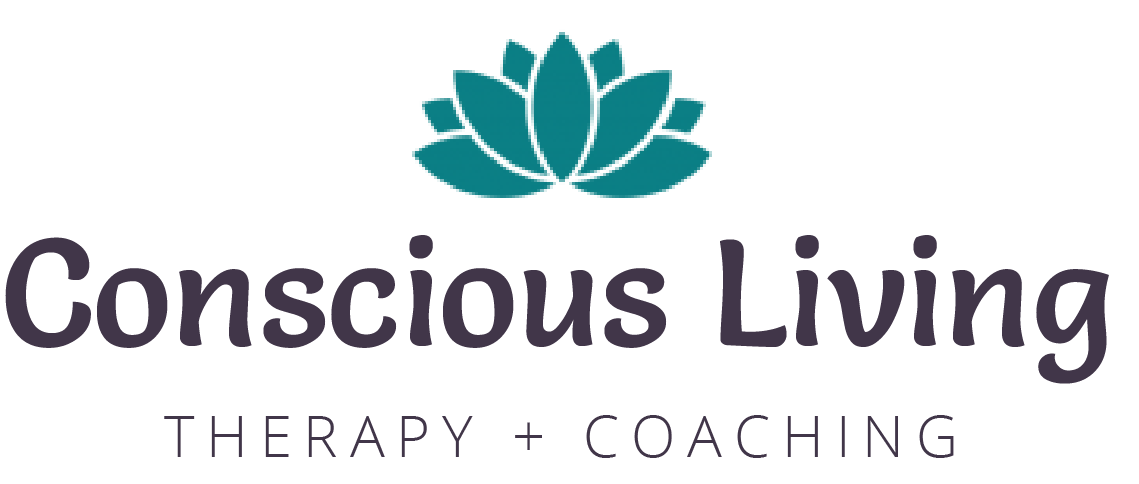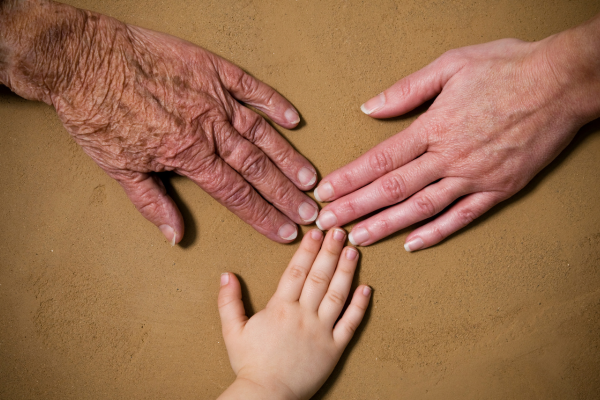The tragic conflict - How to break the cycle of generational trauma
“Authenticity is the capacity to know what we feel, to be in touch with our bodies, and to be able to express who we are, and manifest who we are in our activities and in our relationships.” – Gabor Maté
When you see or hear the term generational trauma you likely think of the vices and not the virtues you may have inherited from your family. But what does this heavily charged term really mean? And if generational trauma is something you are currently carrying, how do you release and heal ancestral pain? How do you break the cycle?
Is this resonating with you? If so, let’s start at the beginning…
What is Generational Trauma?
Generational trauma, also known as transgenerational or intergenerational trauma, is a psychological term for trauma that is passed on to subsequent generations. Meaning, the trauma extends from one generation to the next. Think of the behavioral patterns and relational dynamics of the home you grew up in and ask yourself…
Was it a healthy home environment?
Did you feel safe?
Is history repeating itself in any way in your life – whether in your relationships, parenting style, or lifestyle?
The impact of generational trauma
If you were raised in a traumatized household, you may struggle with a chronically dysregulated nervous system, which can make you more at risk for severe anxiety, depression, and post-traumatic stress disorder (PTSD). But this is just one of the ways generational trauma leaves its mark…
Generational trauma is multifaceted and complex, and it can severely impact your mental, emotional, and physical health. From poor emotional coping mechanisms (such as substance abuse or self-isolation) to difficulty forming healthy attachments, generational trauma can have a profound impact on the psychological, relational, and physical health of all involved.
How does generational trauma get passed on?
Generational trauma wounds run deep, and there are many ways you can inherit generational trauma – through parenting styles, social norms, and even epigenetics. However, Gabor Maté’s research suggests trauma is inherited when a child’s fundamental needs for survival clash.
The tragic conflict between authenticity vs attachment
All children have two basic psychological survival needs:
Attachment – Human connection
Authenticity – The ability to be an individual capable of having, expressing, and manifesting individuality
However, in a traumatized household, a child’s need for attachment is not always compatible with their need for authenticity. For instance, the way your parents may have unconsciously interacted with you as a child may have made you afraid to feel and express what you truly felt. As a child, you may have believed your parents “couldn’t handle” the real version of you.
Children are innately wired for attunement, and if they must choose, children will always default to ignoring their need and desire for authenticity in order to maintain connection and attachment with their caregivers. When children feel that who they really are is unacceptable, they suppress their true nature to not lose the attachment they need for survival – the connection to their caregivers.
Does any of this resonate with you? If so, know this… When we ignore who we are and conform for the sake of maintaining a relationship, we suppress our authentic emotions and lose our sense of self.
I'm here to tell you – that lost sense of self and need for authenticity never goes away.
What I see in my clients is, after neglecting their authentic needs for so long in order to maintain a sense of belonging and attachment, they hit a point where they don't realize who they are or how they feel. As they attempt to find themselves, they instead find themselves in the middle of a quarter-life or mid-life crisis.
What is a Cycle Breaker?
A Cycle Breaker is not a what. It’s a who. Because generational trauma is complex, what it means to be a cycle breaker will vary and look a bit different for everyone. That said, there are a few common traits of cycle breaking.
In general, a cycle breaker is the individual who remembers who they are and decides to prioritize the need for authenticity over the need for attachment. In so doing, they push back against the toxic, dysfunctional, and dysregulated flow of the family system – often at great personal cost. They see the truth, speak the truth, and then, through time and healing, become the truth.
If you are a cycle breaker, you release trapped emotions, process generational pain, heal old wounds, and consciously choose to respond differently than your predecessors. Whether that be through positive parenting techniques, healthy relational communication, and self-care practices, you establish boundaries and intentionally change multi-generational family patterns.
Top traits of a cycle breaker
A cycle breaker is a truth seer.
You identify the unhealthy patterns or toxic traits dominating your family system.A cycle breaker is a truth speaker.
You break the silence and speak your truth. You know that anything you lose by speaking your truth isn’t a loss… it’s an alignment.A cycle breaker is the family scapegoat.
You tend to get blamed, shamed, and shunned. When cycle breakers break the silence, they tend to shatter the perfect family illusion or the denial keeping the rest of the family in sync – even if it is in dysfunctional sync.
When this happens, the rest of the family may default to emotional defense mechanisms and target the cycle breaker as the cause of the unwanted disruption to status quo. The cycle breaker will then be treated like an unwelcome whistleblower – as if ‘things were fine’ before. As if the problem isn’t the multi-generational dysfunction, but the cycle breaker for not going along with it.
Cycle breakers disrupt and eventually dismantle generational patterns by being themselves – their truest self.
How to heal generational trauma
Deciding to heal, grow, and transcend generational trauma is not easy. It takes time to do the work necessary for healing the emotional wounds that have been festering for generations. It takes courage to persevere through the messy middle of ‘doing the work.’ And it takes perseverance to slowly rewire a nervous system that has been dysregulated since childhood.
Healing from generational trauma is not a one size fits all situation. There is no clear path forward, but in most cases, there are three key checkpoints on the journey of healing from generational trauma.
Checkpoint #1 – Becoming aware
You see and acknowledge the deeper generational narrative and hold space for the deep and profound grief the awareness often brings.
Checkpoint #2 – Breaking the cycle
Breaking the cycle is the messy, complicated, and highly emotional process of choosing authenticity – even if that means losing the attachments. When you break the cycle, you simultaneously start to unlearn the toxic patterns engrained into you from a young age and release the survival skills no longer serving you.
Checkpoint #3 – Implementing healthier patterns
Cycle breaking is ultimately the process of reclaiming your original identity. You re-discover and embrace the person you were before the tragic conflict of authenticity vs attachment was forced on you. Sometimes, this process includes family-wide reconciliation. Other times, it means separation from the toxic family environment and surrounding yourself with healthier relationships.
Healing and breaking the cycle of trauma
Rebuilding your life can be lonely, complicated, and exhausting work. Having a trauma-informed, compassionate therapist can be extremely helpful as you navigate the process of breaking the cycle and turning over a new leaf.
Cycle breakers need a support system, but because of the burdens they carry, finding a healthy support system and learning to trust that support system can be very challenging. Therapy and/or coaching is especially helpful to cycle breakers because it provides a healthy attachment to a compassionate, trauma-informed expert. I am honored to work with many cycle breakers. My role is to act as a safe sounding board and mirror to help you step into the truest, highest version of you. My commitment to you is to show up, be your advocate, and help keep you grounded as you break generational cycles of trauma and pursue healing.
Let’s Connect
Hi there! I’m Jenny, a licensed Holistic Therapist (LISW-CP) and Certified Adult Chair® Master Coach.
I combine both therapy and coaching methodologies to provide my clients with a holistic perspective and the techniques they need to flourish. Rediscovering who you were always meant to be is an act of courage, and radical self-love can turn unconscious paralysis into conscious, authentic growth. Learn more about me here.





